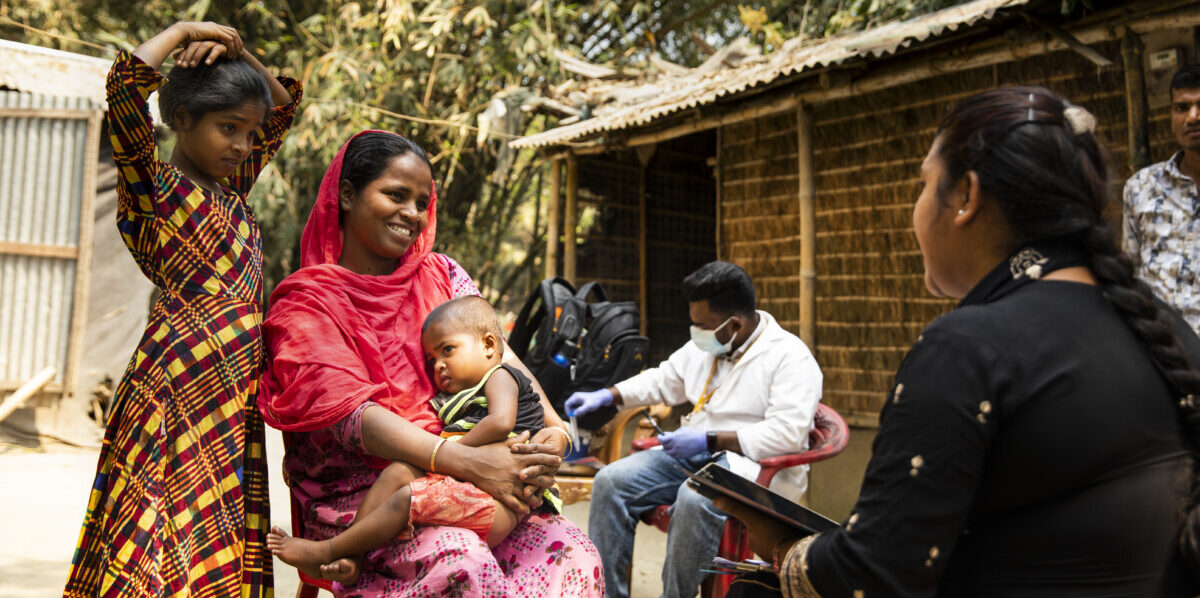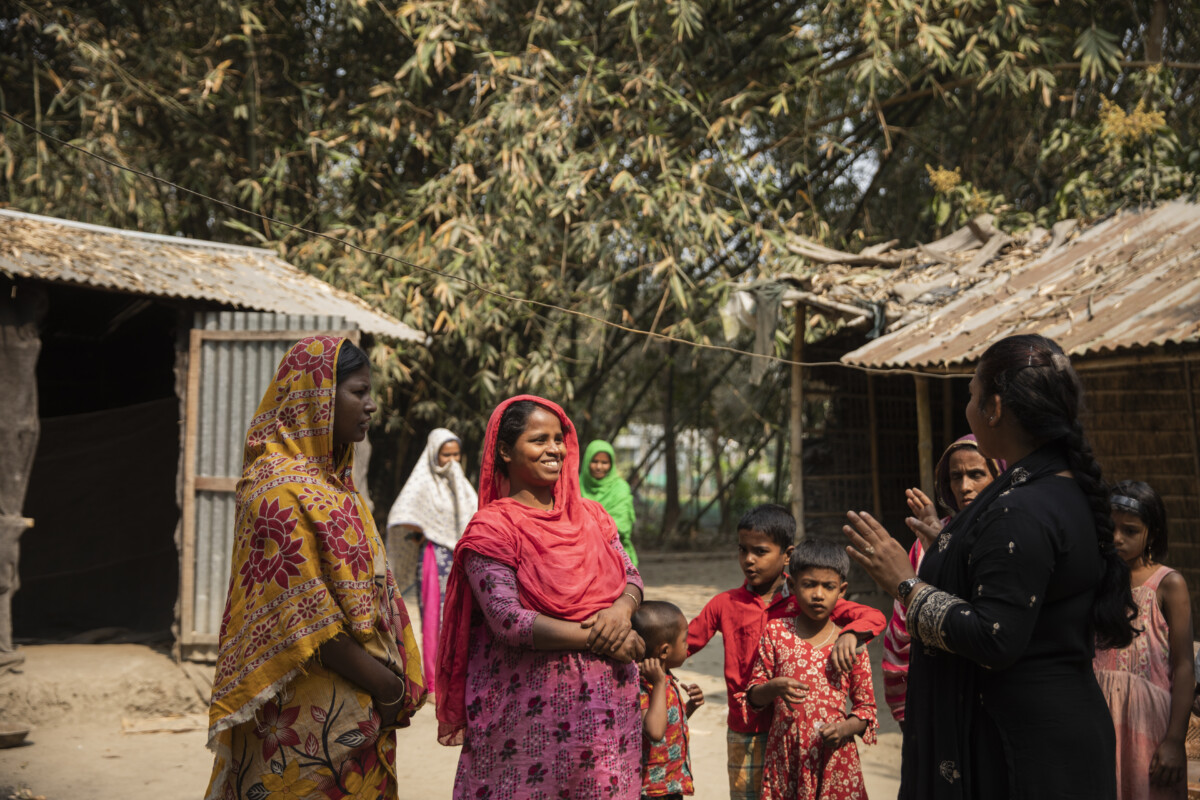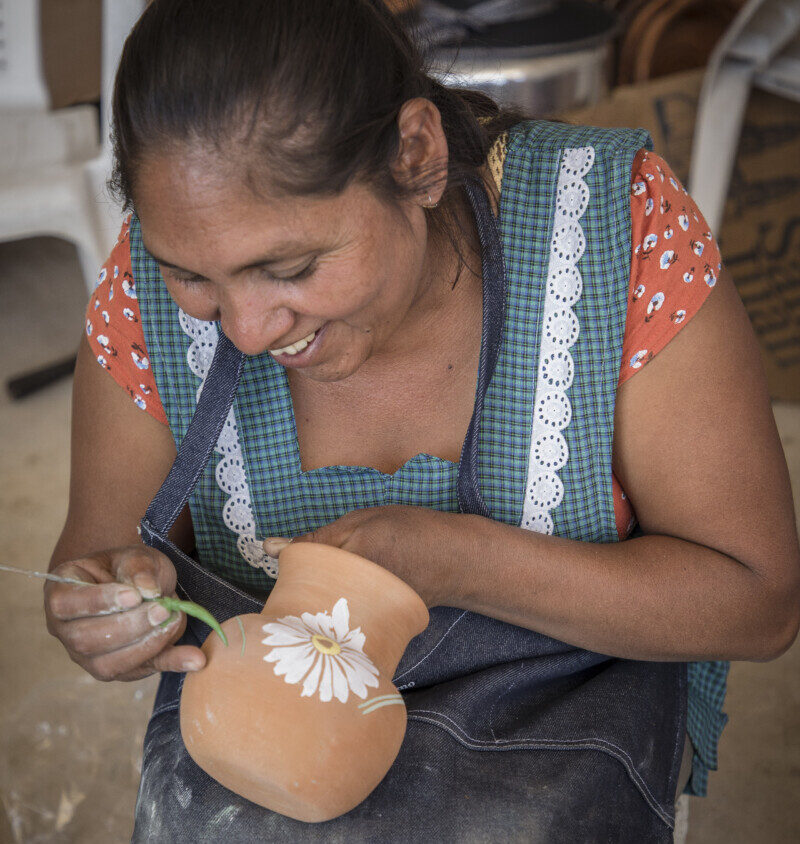Reducing the Threat of Toxic Pollution to Women and Children in Low- and Middle-Income Countries
Toxic pollution causes immense harm to humans, especially to women and children, threatening maternal and child health. It can exacerbate other health concerns, trigger illness throughout the lifespan and can impact generations. But women in communities lead in adopting change. When women are included in remediation projects, polluted communities often experience positive, lasting change.
Pollution and Maternal and Child Health
Toxic Pollution Harms Maternal, Infant, and Child Health
Exposures to dangerous chemicals have a multigenerational impact on women, families and entire communities. Toxicants such as lead and mercury can cause damage to fetuses in utero, including birth defects and neurological damage, and result in lower IQs. These chemicals can also be transmitted to infants via breast milk. Toxic exposures have been linked to pre-term birth, and infant mortality. New research has shown that exposure to toxic pollution in utero can also impact the future reproductive and genetic health of a developing fetus.
Toxic Exposure at Work Migrates to the Home
Artisanal small-scale and informal industrial work that cause pollution and/or use dangerous chemicals on a daily basis, such as mercury use in artisanal gold mining, recycling of used lead acid batteries, tanneries using hexavalent chromium and e-waste burning constitute areas of particular concern. Millions of women are dependent on these industries for their livelihoods and are exposed daily to toxic chemicals while they work. It is not uncommon for children to accompany their mothers to work. Often, subsistence industrial work is performed in orvery close to where they live. This poses an even greater health risk to infants and children due to their smaller size and increased body burden. After work, women return to their homes to prepare meals and care for children. The workplace toxins come with them on their clothes, skin and in their hair, contaminating entire households.
Women, Pollution, and Poverty
Toxic pollution, its health risks and subsequent environmental degradation are linked with poverty, and can hinder economic development and the poverty reduction efforts for women.
Women in informal toxic industries are commonly pushed to the fringe, thereby forming a de facto high-risk population. For example, they may be economically isolated, excluded from cooperatives or ownership positions or paid through back channels to work in their homes or backyards rather than in monitored, safer industrial environments. Women at the lowest economic rungs are relegated to sub-sectors of already informal toxic industries, scavenging through lead slag or downstream mining waste by hand. As primary caregivers, women’s workloads are additionally burdened when toxic pollution exposures cause illness or disability.
Aside from direct exposures, toxic pollution can also disproportionately burden women and girls. They are at greater risk for multiple pollution exposures, such as mercury or lead exposure plus exposure to air pollution from indoor cook stoves. Industrial contamination of water has made many ground and surface water sources no longer safe for domestic use. Girls and women have to spend time traveling longer distances for safe water, or must divert scarce income for the purchase of safe water, resources that could be spent on a girls’ education building future earning potential.
Women Taking the Lead
Pure Earth directly addresses gender issues in its work by ensuring participation in project activities and project benefits are equitable, and that all community education and project activities involve and enable women, as well as use gender appropriate accessible tools, language, and procedures.
For each project, specific gender objectives are to:
1. Ensure equitable participation of women and men in technical assistance and education/ communication activities;
2. Incorporate gender considerations into baseline data collection and strategy development in designing projects; and
3. Hire and train an inclusive project staff representative of the population served, including languages spoken, gender, and cultural background.
Honoring Women Working to Solve Pollution
On International Women’s Day and everyday, Pure Earth honors leaders who are pioneering the fight against pollution.
Spotlight on the Circle of Women Project by Pure Earth Mexico
In Mexico, despite the fact that almost half of all potters in the country are women, traditional paradigms of work and wage-earning had brought mostly men to Pure Earth workshops aimed at helping artisans transition to lead-free techniques.
To better include women, Pure Earth created the Circle of Women (Circulo de Mujeres) project to empower women in the community, and help them market their lead-free pottery and grow their business while safeguarding their health and the health of future generations.
Resources
Pure Earth Fact Sheets and Case Studies
- Fact Sheet: Reducing the Threat of Toxic Pollution to Women and Girls in Low- and Middle-Income Countries
- Why Women Hold The Key To Fighting Pollution
- Women and the Fight Against Pollution
- Mexico: Success Stories from the Circle of Women
- Indonesia: Meet Our All-Female Team of Pollution Investigators
- Empowering Women Gold Miners in Indonesia
Research and Articles
- Environmental pollutants and their impact on women’s health
- Are Women More Vulnerable to Environmental Pollution?
- How Environmental Toxins Harm Women’s Reproductive Health
- Mercury Exposure in pregnancy: a review
- Fetal Lead Exposure at Each Stage of Pregnancy as a Predictor of Infant Mental Development



